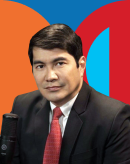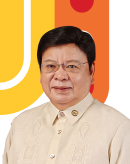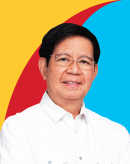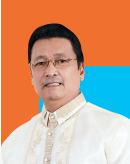ESD: A continuing challenge and commitment
“Education for sustainable development is fundamentally about values, with respect at the centre: respect for others, including those of present and future generations, for difference and diversity, for the environment, for the resources of the planet that we inhabit.” – United Nations Decade of Education for Sustainable Development 2005-2014.
In 2003, as a consequence of the Johannesburg World Summit on Sustainable Development and the United Nations General Resolution on the Decade of Education for Sustainable Development 2005 to 2014 (DESD), the UN University (UNU) through its Institute of Advanced Studies (UNU-IAS) launched a program on ESD.
ESD is a path towards societal transformation where we acknowledge our interconnectedness not just with one another but also with non-humans, conscious of the concomitant responsibility to respect them and their rights. ESD requires the collective integration of values, knowledge, wisdom and stewardship in protecting our life support system—land, air, water and biodiversity—without which we cannot hope to exist. By doing so, peace, stability and ecological integrity are not only fostered; the groundwork for a sustainable future that our generation owes and must commit to those yet unborn is carefully laid.
ESD is a continuing challenge as it entails changing our fossil-fuel driven lifestyles and throw-away and “Me-first” mindsets, for choices that consider the “WE,” the collective welfare of humanity and are in harmony with nature. It can perhaps be described as an “exciting adventure” that values innovation, exploration and most importantly, engaging the crucial participation of multi-stakeholders in finding solutions to the climate, economic and social upheavals besetting our world. It encourages letting go of set methods of looking at challenges that contributed in bringing us to the current state of ecological devastation.
UNU-IAS is credited for developing a concept paper on Regional Centres of Expertise on Education for Sustainable Development (RCEs) under the leadership of then UNU recto, Hans Van Ginkel, who is acknowledged as the Father of the RCE Movement. RCEs were thus established in connection with the UN DESD 2005 to 2015.
What exactly is an RCE? It can be said that an RCE is “not a physical centre but a network of existing local/regional institutions mobilized to promote all types and levels of learning for a sustainable future.” It is “an institutional mechanism to facilitate capacity development for sustainable development.” (Five Years of Regional Centres of Expertise on ESD, UNU-IAS, 2010)
Development of each RCE varies depending on the vision, needs and commitment of the local stakeholders and its interaction with national, regional and global players.
As of April, 2012, 141 RCEs were recognized in the global network, with four established in the Philippines, including RCE-Cebu.
The tranquil and lovely “land of the sea,”—the city of Tongyeong in Korea, so rich in history, culture and the arts, provided the perfect backdrop for the 2012 7th Global Conference of RCEs.
RCE-Tongyeong is among the pioneer RCEs with an inspiring partnership with the government. The city has provided the budgetary support for the RCE since 2005. The goals of ESD were promoted by the government’s education team in collaboration with the RCE, with government employees assigned RCE-related work. The officer training program is a model of exemplary government-RCE collaboration, with activities that include quarterly lectures on sustainable development, seminars on eco-city policy-making and training workshops on sustainable cities.
While there were built-in challenges in working with the public sector, RCE Tongyeong’s indefatigable Won Jung Bun observed that “Overall, the engagement with government has contributed to the firm and timely establishment of the RCE within the education system… and has helped to reach its ESD goals.” (Five Years of Regional Centres of Expertise on ESD, UNU-IAS, 2010)
Conference participants saw first hand the benefits of such collaborative engagement in the well-executed program, sessions and the activities in the conference that could not have happened without months of planning and deliberation. Tongyeong City is among the sponsors of the well-organized conference under the leadership of the amiable Mayor Kim Dong-Jin together with RCE-Tongyeong and UNU-IAS.
It is with distinct pride and honor that our very own Vice Mayor Al Arquillano of the multi-awarded municipality of San Francisco, Camotes Island was among the four main speakers in the Roundtable Discussion Among Policy-Makers on Engaging ESD and RCEs. His sharing of the San Fran purok system of governance never fails to catch the admiration of other policymakers and the observers in the event. The San Fran experience has shown that grassroots participation in decision-making, coupled with a sincere and committed political leadership of authorities can make sustainability a lifestyle choice, a reality.
While the urbanized locales are still debating how and when, if ever, to regulate plastic use, San Francisco has done so a long time ago, with Zero Waste as a collective goal. It won the UN Sasakawa award for Disaster Risk Reduction and Management in 2011 as the empowered people in the puroks have taken ownership of the disaster risk reduction and management program, crafting their own measures for safety and preparedness, anchoring their response on the Hyogo Framework of Action, which they translated into Cebuano.
RCE Cebu has collaborated with San Francisco through Vice Mayor Arquillano in showcasing best practices in sustainability in an enriching field trip to the municipality and recently, in the seminar workshop on the establishment of command centers for natural hazards.
The University of Cebu College of Law, as member institution of RCE Cebu, contributed to the ESD Library of RCE-Tongyeong, the newsletter that the law students made, after visiting San Francisco last February, inspired no end by the empowering experience.
This columnist is most grateful to RCE-Cebu, UC and the College of Law, UNU-IAS, RCE-Tongyeong and the government of Tongyeong, her co-participants and the countless volunteers for the enriching and productive Conference. Thanks likewise to the Cebu city government through Councilor Nida Cabrera, for the donation of the bags and accessories made of recycled materials that our communities made for the flea market set up during the conference.
Mabuhay!































